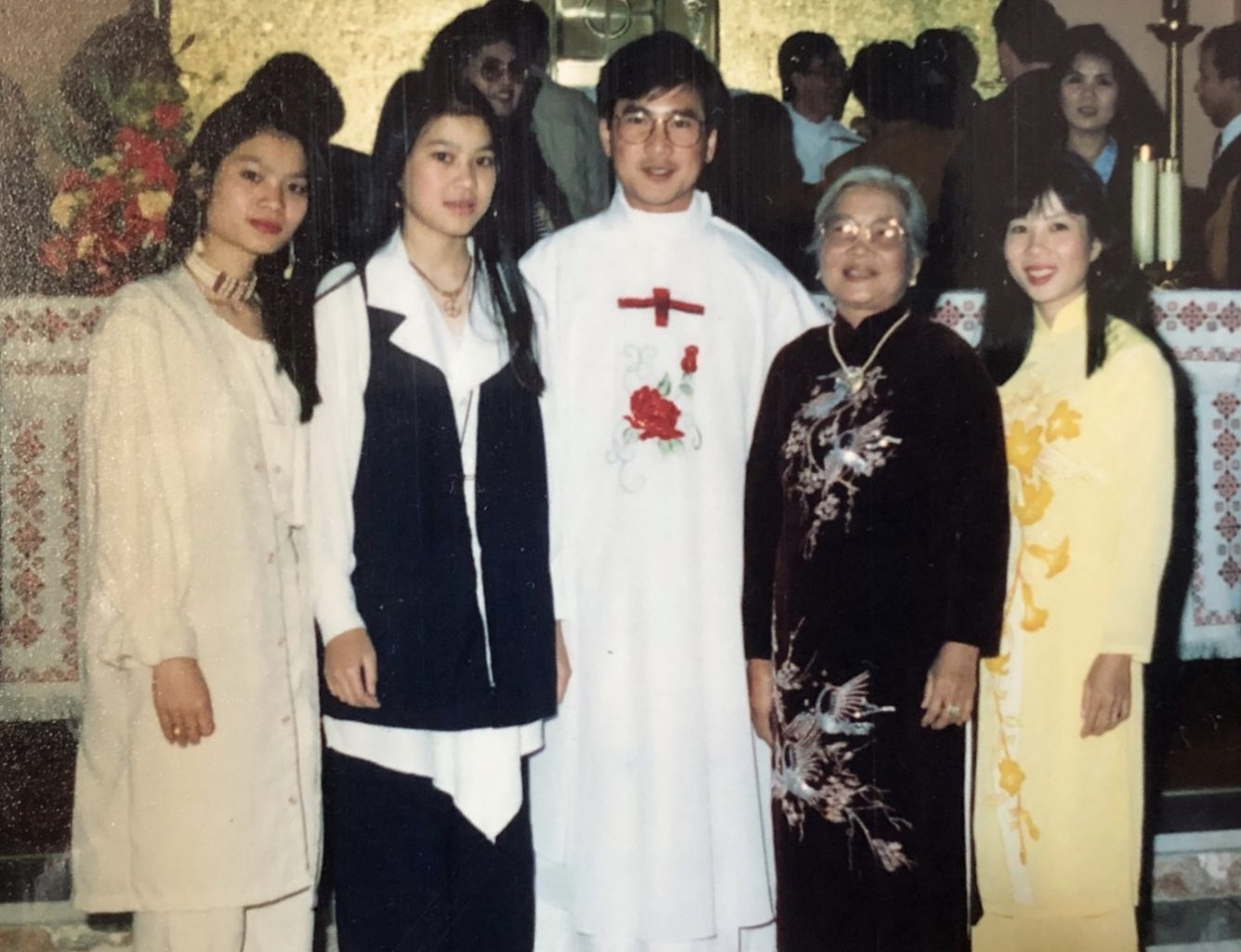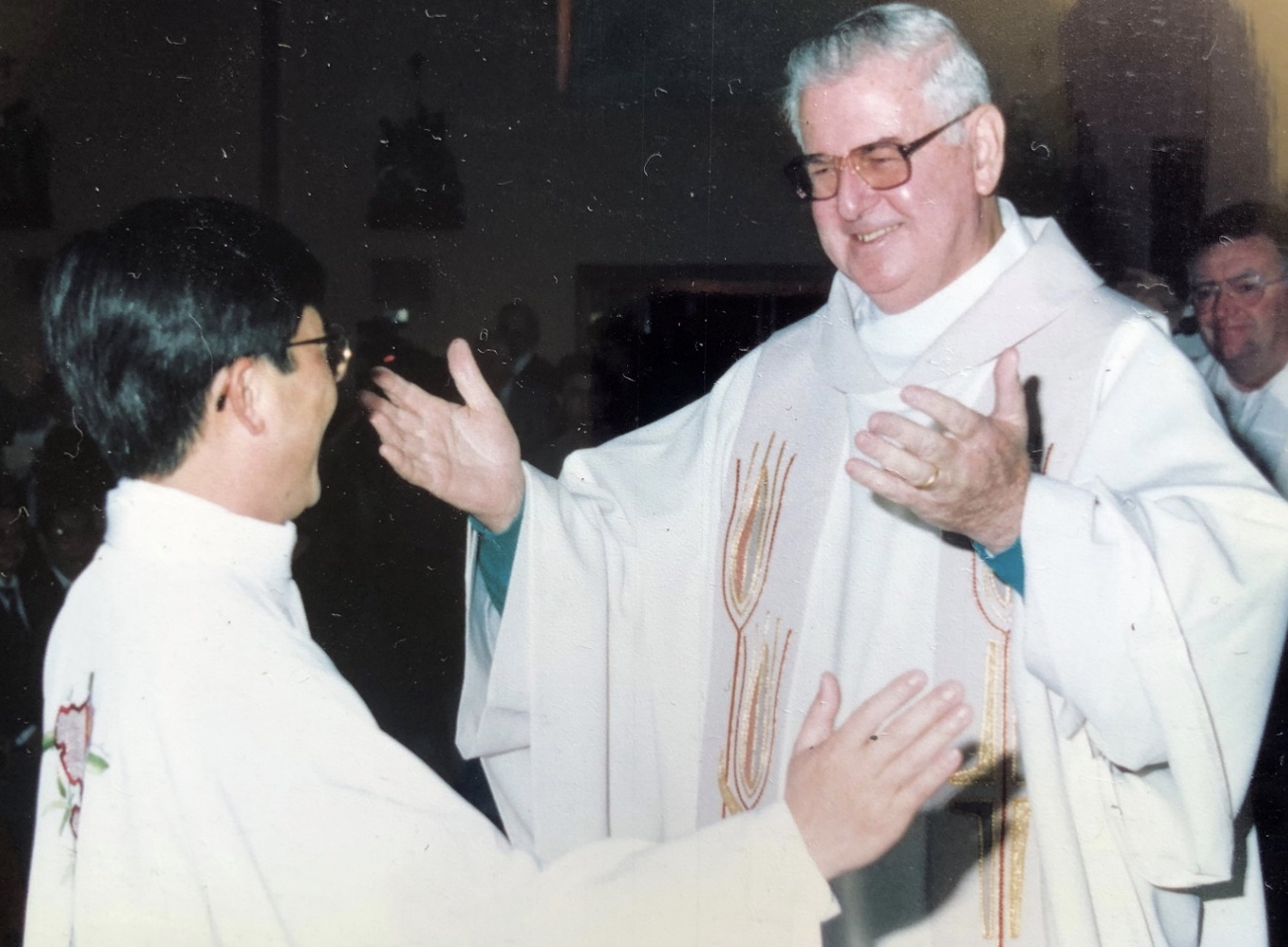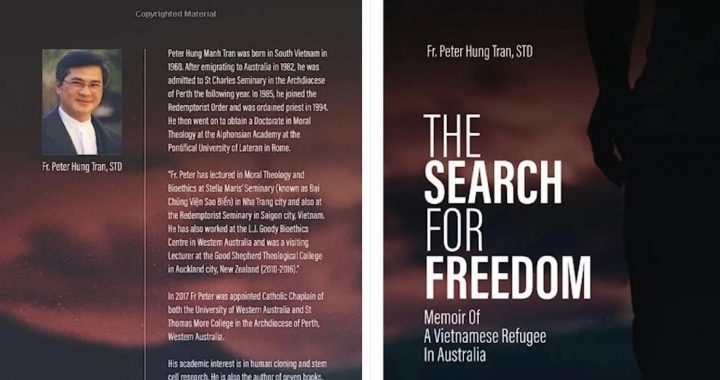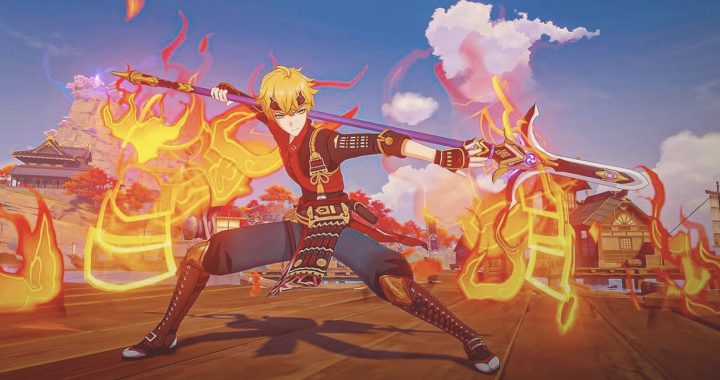BOOK REVIEW: Fr Peter Hung’s journey from fugitive and refugee to the Priesthood
Basic military training is tough. Anyone who has been through it will testify to this. Recruits go through this to toughen them up so that they will defend their homeland without fear when they need to. The fittest among them are invited to undergo further training, which is the most punishing in the world, to become elite troopers.
Only about 30 percent of those who go through this demanding course ultimately earn the prestigious Special Forces badge. They are the ones who take on the riskiest operations, often behind enemy lines, to eliminate threats to their armed forces, countries and civilian population.
The armies of the world battle and defend against flesh and blood enemies. But the deadliest foes we face are not humans, but supernatural beings in the spiritual realm. It is a far more deadly battle that has eternal implications. It is a fight between the Army of God and the dark forces of Hell – Satan and his demons – for every human soul that God loves so deeply and wants to save from damnation.

The formation of Christ’s priestly warrior
In this tussle between good and evil, God has formed and is continuously forming His Army in the visible world. Among them are elite warriors who go through extreme regimens to strengthen the human soul to withstand and counter the evillest attacks.
As I read and edited Fr Peter Hung’s book, The Search for Freedom, I can’t help but see the turmoil he went through on his journey to the priesthood along the lines of Special Forces training. In his case, God the Holy Spirit, as I see it, was forming him to be one of His elite spiritual warriors to save souls from the forces of Hell.
While God calls upon His Church Militant journeying in the world to holiness as weapons against the powers of darkness, some – lay, clergy and religious – are set aside to endure immense suffering for a special purpose. And it is my belief, Fr Peter is one of them.
His first encounter with turmoil came in the aftermath of the Communists’ takeover of Vietnam in 1975, when they prevented him from studying in the seminary to become a priest. To achieve their objective, the Communists forced Peter to join the ranks of their army to fight a war in Cambodia, which would have meant certain death for him.
The Search for Freedom tells his story of how through God’s Grace, he eventually managed to flee the Communists’ clutches and become a fugitive. Living alone in the jungles of Vietnam and hunted like an animal, he came to the point of despair and wished that death would visit him to end his torment.
But God was actually forming Peter to be resilient in his faith and spirit. He gave His priest-in-waiting the Grace to endure the unforgiving Vietnamese jungles before leading him out of the country in a rickety boat through a treacherous, stormy sea. It was a journey the young Peter and his fellow escapees were convinced would end in the sinking of the boat and their eventual death by drowning.
This, though, wasn’t in God’s plans for He guided the boat to its final destination – a camp for Vietnamese refugees on Pulau Bidong, which is an island off the north-western coast of Malaysia. There, Peter had to go through further trials as he had to see many of his compatriots find passage to third countries with ease because they had relatives living in those places.
He had no one living outside of Vietnam and faced a years-long wait in limbo. At Pulau Bidong, Peter’s faith was edging towards a cliff. He had almost given up all hope when after eight months on the island, Australian officials in 1982 offered him sanctuary in their country. It was a surprise development because Peter could not speak a word of English and not knowing anyone there, he would have had difficulty assimilating into Australian society.
I’ve known Fr Peter since he was a Redemptorist seminarian in Melbourne. His mentor and our family’s close friend, Father Patrick John O’Neill (1932-2007), reached out to us in the mid-1980s for this young seminarian to spend his vacation with us in Singapore as he was unable to return to Vietnam to visit his parents.
When Peter came to us, he hardly spoke a word of English, and all we knew then was that he was one of the original Vietnamese “Boat People” who fled the brutal Communist regime in his home country. Over time, he became part of our family, an adopted son of my parents and our brother.
It was only when Peter was able to converse fluently in English that we began to learn the horrors of what he went through as a seminarian in Vietnam.

From wishing death to saving souls
That he went through extreme trials and tribulations is an understatement. I believe God did not permit him to go through this if it wasn’t to aid Fr Peter’s formation for greater things to serve His Will against the forces of evil.
Fr Peter has since earned a doctorate in moral theology and lectures on the subject. He also has an academic interest in human cloning and stem cell research, and has written a book, Advancing the Culture of Death: Euthanasia and Physician Assisted Suicide, from the perspective of the Catholic Church’s teachings.
In recalling his treacherous journey to the priesthood, Fr Peter says, “The journey to find God, that I have experienced in my life, has not been an easy one. There were times when I had fallen into a deadlock, with no way out, no hope, and I did not feel the presence of God in the darkness of life. At that time, I only wished that God would allow me to die in peace, so that I could be united with Him in heaven.
“Death for me at that time would help me to release my own sufferings, which I was constantly facing every day during that time, while I was a fugitive. Since living without freedom, without future, without education and without being able to live together with your loved ones in the family, life can be meaningless and boring. One may wish to stop living. Probably in such situations, sometimes death could be the better option and that thought flashed through my mind.”
This book also offers glimpses of his life after he was ordained priest, as he shares how he was drawn closer to Jesus Christ through the love of His Blessed Virgin Mother. We learn that through all his trials and tribulations, even as a priest, how the Holy Spirit has been at work forming him to follow God’s Will to be a disciple of Christ. He has faithfully answered the Saviour’s Great Commission to spread His Gospel and lead all people to God in His offer of Salvation to eternal life, and the book, The Search for Freedom, is part of his mission.
Fr Peter is God the Father’s Special Forces spiritual warrior in the Militant Church: to strengthen believers in their faith in Him and for unbelievers to find Him in Jesus Christ.
He is a witness to hope for people who toil under the weight of trials and tribulations that if they endure, the Holy Spirit will transform them into spiritual warriors according to His Will, which ultimately leads to abundant joy in heavenly riches.
Fr Peter’s book, The Search for Freedom, is available at Amazon

